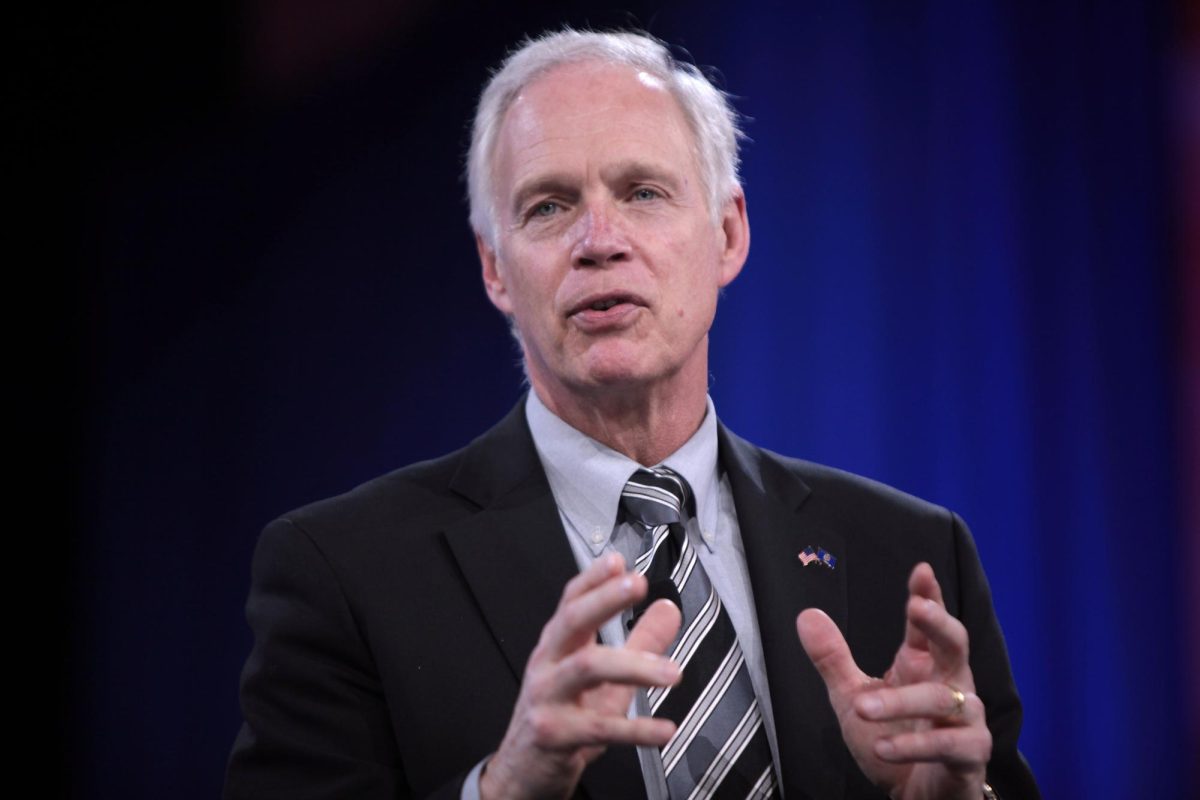Sybrina Fulton, mother of 17-year-old Trayvon Martin, who was fatally killed on Feb. 26 2012, spoke at UW Oshkosh about improving society at a local level at the Alumni Welcome and Conference Center on April 12.
“If you don’t help to make this a better world and a better country, then you are part of the problem,” Fulton said.
Fulton was the keynote speaker of this year’s Social Justice Week.
Director of Equity & Affirmative Action Ameerah McBride said bringing Fulton in to speak was apt considering current events happening nationwide.
“We thought her message in regards to the incident that occurred, with her son being killed, would be timely given other events that are occurring nationally,” McBride said. “We want to continue the conversation about what’s happening nationally, and I think bringing her here sort of sparks that conversation.”
Fulton said the day she lost her son was not the worst day she has gone through.
“The worst day of my life was attending a funeral of my 17-year-old son who had been murdered as a result of senseless gun violence because of the color of his skin,” Fulton said.
Fulton said America may be a successful nation by some standards, but it does not measure up in terms of equality.
“We are one of the smartest countries in the world; we are one of the most advanced countries in the world,” Fulton said. “But we are not one of the most equal countries in the world.”
McBride said the University has not just the right, but the responsibility to engage in tough conversations.
“Even though it’s difficult to talk about these issues, I think as a university we have an obligation to speak about issues that may appear controversial or polarizing,” McBride said.
McBride said she hopes students walk away from Fulton’s speech with their minds open to other views on the issues facing them.
“One of the things I hope the students are able to take away is the ability to engage in the conversation and understand that even if we may not agree with each other we can still respectfully debate and discuss issues,” McBride said. “I think that’s the cornerstone of higher education.”
Fulton said Americans can learn to accept each other and move away from a culture of ignorance and hatred.
“I do think we can get to a place where we can respect our differences,” Fulton said. “That we can respect one another for who we are and what we are.”
Fulton said colleges are where change begins, and that Chancellor Andrew Leavitt is accommodating to positive change at UWO.
“I think this campus has a chancellor who is open to making positive change and I think students should show the positive energy and show that they want to make change and try to do that action in order to get to that spot where they want to be,” Fulton said. “I think it starts with any university, it starts on any college campus, because it’s going to start with our young people.”
Leavitt said UWO must teach acceptance of diversity to all students attending the University, especially those who come from less diverse hometowns.
“Many of our white students will say this is the first time they’ve ever encountered African-American students, or they’ve ever encountered Latinos, or other groups, because they come from a lot of small towns in Wisconsin,” Leavitt said. “So I think we have an obligation as an institution to educate those students on what it means to live in a diverse society.”
According to Leavitt, it’s difficult for him to perceive the microaggressions people of color endure on a daily basis, but he can learn by listening.
“As a white person, it’s something that’s relatively invisible to me,” Leavitt said. “One thing I’ve learned about this process is I can never speak for someone else. They must speak for themselves.”
The director of the social justice minor at UWO, Courtney Bauder, said sparking an open conversation is a main goal of Social Justice Week.
“We need to push ourselves to engage in important conversations that reach different communities and open up our hearts and minds to learning from one another,” Bauder said.
Bauder said part of the goal of the social justice program is helping students to use their education for more than just tests and quizzes.
“We want to inspire our students to use the learning they take from in the classroom and the events around campus and transform that into action on behalf of equity and justice in both their personal and professional lives,” Bauder said.
Fulton said students should become active and informed participants in the upcoming elections.
“We’re not going to discuss who you’re going to vote for, but I want you guys to just do your research,” Fulton said.
According to Fulton, Americans need to have respect for everyone, regardless of their race, social status or education level.
“It does not matter what income level you come from, it does not matter what education you come from, it does not matter if you’re black, white, purple, green, if you’re African-American, white, Asian, whatever; it does not matter,” Fulton said. “We have to respect each other for the differences we have.”
Fulton said she is behind movements, like Black Lives Matter, which spread across the country following her son’s death.
“Now that their eyes are open, you have movements like Black Lives Matter that want to do something about it,” Fulton said. “And I’m glad, I’m grateful, and I really appreciate those types of movements because it can only move us, force us to move to the next step, which is to do something about it.”
UWO sophomore Maggie Weklar said Fulton speaking to people in positive terms works to motivate them.
“I can’t imagine how she does it with such a positive attitude,” Weklar said. “She’s using it to move people, which she’s clearly doing an excellent job of.”
According to Fulton, feeling a certain type of way about an issue is not enough to change anything–action is required.
“So now you can’t just be angry anymore; you can’t just be upset anymore,” Fulton said. “What are you going to about it?”








